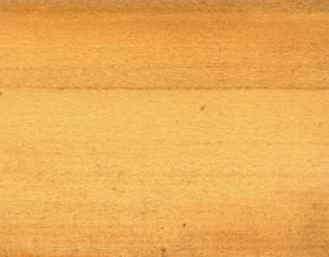
Muzaisi (Cassipourea verticillata)
Family: Rhizophoraceae
Common names: Itswili, Messimbe, Muzaisi, Mzimbe, Onoinwood, Rhozima
Distributed in: Kenya, Malawi, Mozambique, Tanzania, Uganda, Zambia (Africa)
Distribution overview: East Africa.
Common uses: Balusters, Boxes and crates, Building construction, Building materials, Casks, Chairs, Chests, Concealed parts (Furniture), Construction, Decorative plywood, Desks, Dining-room furniture, Domestic flooring, Dowell pins, Dowells, Drawer sides, Excelsior, Fine furniture, Fishnet floats, Floats, Floor lamps, Flooring, Flooring: industrial heavy traffic, Furniture , Furniture components, Furniture squares or stock, Furniture, Handles: general, Hatracks, Interior construction, Interior trim, Joinery, Kitchen cabinets, Ladders , Light construction, Living-room suites, Millwork, Moldings, Office furniture, Packing cases, Parquet flooring, Plywood, Radio - stereo - TV cabinets, Rustic furniture, Turnery
Environment profile: Vulnerable
The environmental status of this species within its geographical range has not been officially determined
Tree size: Trunk diameter is 100-150 cm
Colors: the heart isYellow, Yellow to golden-yellow to orangeand the sapwoodWhite, Yellow.The grain isStraight, the textureMediumand the lusterLow
Natural durability: Susceptible to insect attack, Very durable
Odor: Has an odor
The wood possesses a strong onion-like scent when freshly cut. The odor occasionally persists when the wood is dried
Kiln Drying Rate: Naturally dries slowly
Drying Defects: Moderate twist/warp, Splitting
Ease of Drying: Slowly
Comments: Generally strong and tough for its weight.
Blunting Effect: High to severe
Boring: Fairly easy to very easy
Carving: Good carving qualities
Cutting Resistance: Fairly Difficult to Very Difficult to saw
Gluing: Poor to Very Poor Results
Mortising: Very Good to Excellent
Moulding: Fairly Difficult to Very Difficult
Movement in Service: Fairly Difficult to Very Difficult
Nailing: Fairly Difficult to Very Difficult
Planing: Poor to Very Poor
Resistance to Impregnation: Resistant sapwood
Response to hand tools: Fairly Difficult to Difficult to Work
Routing recessing: Fairly Difficult to Very Difficult
Sanding: Very Good to Excellent Results
Veneering qualities: Difficult to veneer
Turning: Fairly Difficult to Very Difficult
Polishing: Very Good to Excellent; Staining: Surface Preparation;
- Numerical data Metric
- Numerical data English
- Strength properties
- References
 |
 |
 |
 |
| Item |
Green |
Dry |
Metric |
| Specific Gravity |
|
|
|
| Density |
|
576 |
kg/m3 |
| Bending Strength |
|
|
kg/cm2 |
| Crushing Strength |
|
|
kg/cm2 |
| Hardness |
|
|
kg |
| Impact Strength |
|
|
cm |
| Shearing Strength |
|
|
kg/cm2 |
| Stiffness |
|
|
1000 kg/cm2 |
| Tangential Shrinkage |
|
|
% |
| Radial Shrinkage |
|
|
% |
| Weight |
|
|
kg/m3 |
| Maximum Load |
|
|
cm-kg/cm3 |
| Toughness |
|
|
cm-kg |
| Static Bending |
|
|
kg/cm2 |
|
 |  |  |  | | Item | Green | Dry | English | | Density | | 36 | lbs/ft3 | | Weight | 35 | 28 | lbs/ft3 | |
Density (dry weight) = 38-45 lbs/cu. ft.
Density (dry weight) = 31-37 lbs/cu. ft.
Banks, C.H. and J.P. Schoeman. 1963. Railway Sleeper and Crossing Timbers. Bulletin No. 41, Republic of South Africa. The Government Printer, Pretoria, South Africa.Bolza, E., Keating, W.G.,1972,African Timbers - the Properties, Uses and Characteristics of 700 Species,C.S.I.R.O. Div. of Building ResearchBrenan, J.P.M., Greenway, P.J.,1949,Check-lists of the Forest Trees and Shrubs of the British Empire,Imperial Forestry Institute, Oxford No.5 Tanganyika Territories Part 2Scott, M.H.,1950,Notes on the more Important African Timbers Imported into the Union with,Special Ref. to Port. E.A. Species,Journal of the South African Forestry Association,No.19,pp18-62,[South,African Forestry Journal]
|








